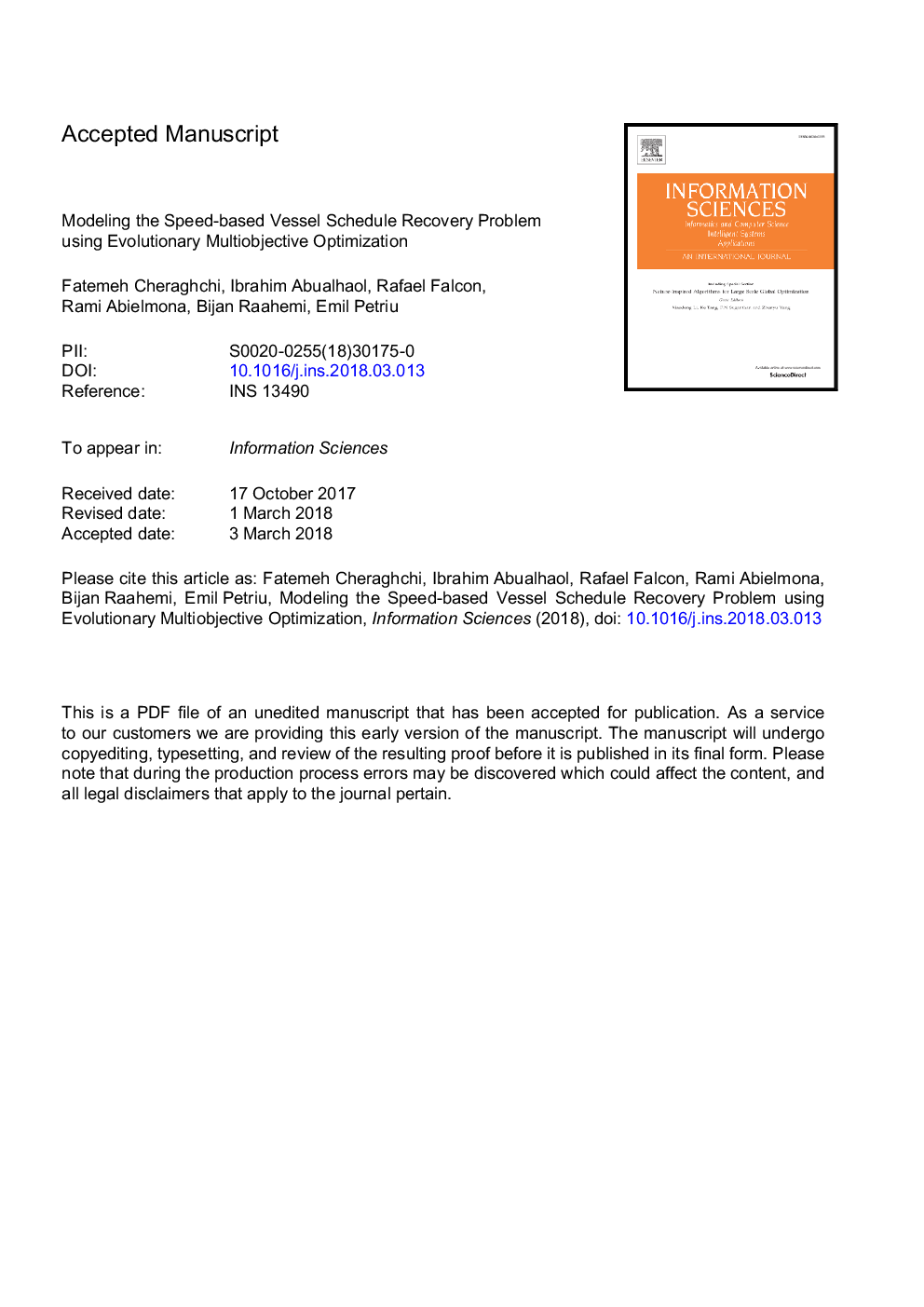| Article ID | Journal | Published Year | Pages | File Type |
|---|---|---|---|---|
| 6856482 | Information Sciences | 2018 | 39 Pages |
Abstract
Liner shipping is vulnerable to many disruptive factors such as port congestion or harsh weather, which could result to delay in arriving at the ports. It could result in both financial and reputation losses. The vessel schedule recovery problem (VSRP) is concerned with different possible actions to reduce the effect of disruption. In this work, we are concerned with speeding up strategy in VSRP, which is called the speed-based vessel schedule recovery problem (S-VSRP). We model S-VSRP as a multiobjective optimization (MOO) problem and resort to several multiobjective evolutionary algorithms (MOEAs) to approximate the optimal Pareto set, which provides vessel route-based speed profiles. It gives the stakeholders the ability to tradeoff between two conflictive objectives: total delay and financial loss. We evaluate the problem in three scenarios (i.e., scalability analysis, vessel steaming policies, and voyage distance analysis) and statistically validate their performance significance. According to experiments, the problem complexity varies in different scenarios, and NSGAII performs better than other MOEAs in all scenarios.
Related Topics
Physical Sciences and Engineering
Computer Science
Artificial Intelligence
Authors
Fatemeh Cheraghchi, Ibrahim Abualhaol, Rafael Falcon, Rami Abielmona, Bijan Raahemi, Emil Petriu,
